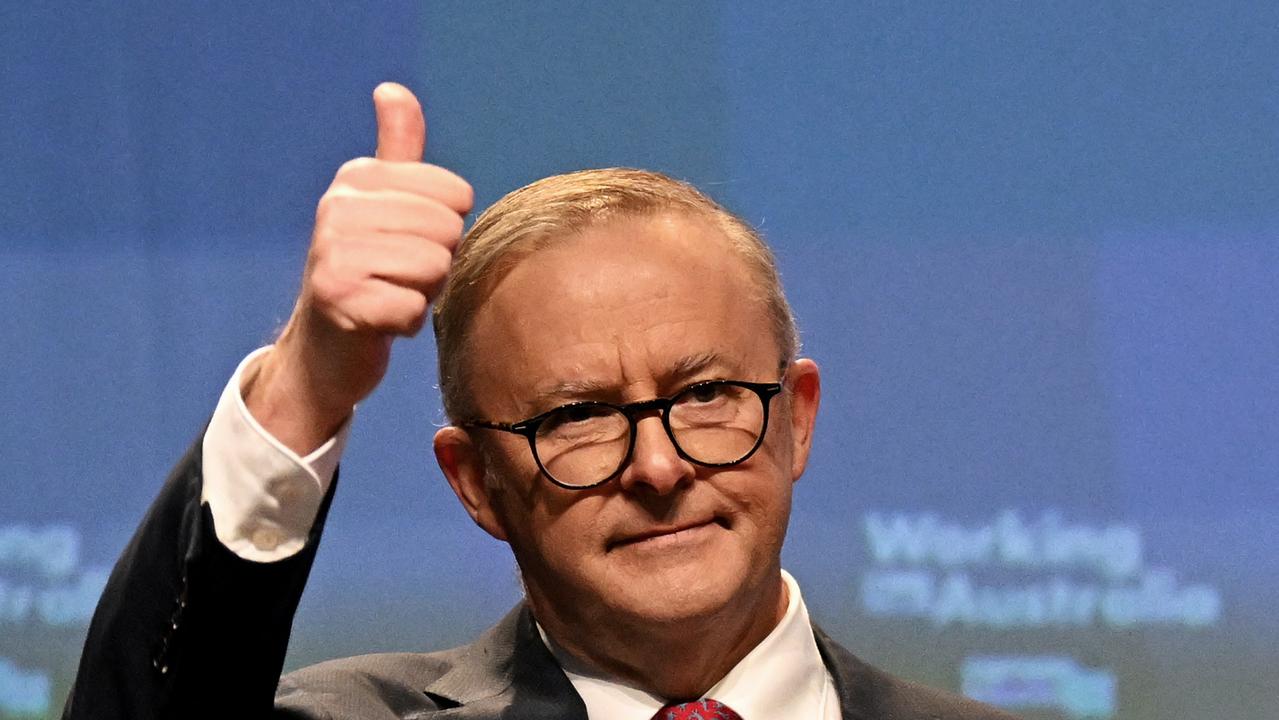Albanese seeks to repair the relationship with business as IR hovers over productivity agenda


Contained in this appeal is an important admission. The Prime Minister is effectively suggesting that a Labor government can’t deliver on its agenda without support from business.
Nowhere is this more evident than its climate change ambitions and the energy transformation.
But it goes beyond that.
Albanese seeks consensus on a broad range of what he calls the “defining challenges” of our generation, driven by the demographic shift to an ageing population and the change in strategic economic direction.
His speech to the annual Business Council of Australia dinner was an attempt to restore the relationship with business at a time when trust has been broken.
Having taken the new Labor government at its word that it would be seeking modest reforms, the BCA feels betrayed over industrial relations.
This remains a sticking point for any broader economic settlement between the state and the private sector.
Albanese played down the conflict, acknowledging business “input” but giving no ground on the government’s determination.
While business has swung behind the Indigenous voice, it is now understandably more cautious about Labor’s motives in sectors of the economy which are traditionally contested.
Albanese’s message to corporate leaders is that Labor is not anti-business.
There is agreement over fundamental goals. Greater prosperity, stronger productivity, higher growth and improved living standards.
The Prime Minister suggests there is a “strong overlap” between the priorities of business and the government’s agenda.
A divide exists, however, over the policy prescriptions to achieve these outcomes.
At the heart of better outcomes is the productivity crisis. The Intergenerational Report to be released on Thursday shows a new era of lower economic growth for the decades ahead as a result.
Albanese invokes the great productivity leap of the Hawke/Keating era. This was driven largely by technology – the mass introduction of computerisation.
He sees the embrace of a new wave of technology as the transformative feature of the next 40 years. He sees government having a role in the regulation of artificial intelligence, investments in digital skills and supporting innovation, but says the big productivity gains in technology will be led by the innovation and enterprise of firms.
“And we are going to need to work with each other and learn from each other to get the best out of this technology for our citizens and our customers, while safeguarding our people and firms from its potential risks,” he says.
But productivity remains the elephant in the room.
Productivity Commission chair Michael Brennan, at the National Press Club on the same day, warned that the world had changed and Australia needed to be making decisions about how to minimise the emerging threats to living standards and growth.
Brennan sees three key issues that are both global and domestic in nature: security of supply chains; the policy shifts to protectionism in the US and Europe; and the need to decarbonise the economy in a very short period of time.
While Albanese was talking of the need for business to innovate, Brennan says innovation within government would also be critical to future productivity gains. A mutual responsibility.
Albanese’s rhetoric will have appealed to some in the room.
Business will be rightly cynical, however, as long as resolution remains remote over the next phase of the government’s industrial relations laws.




Anthony Albanese is seeking a new accord with business to deliver Labor’s ambitions.